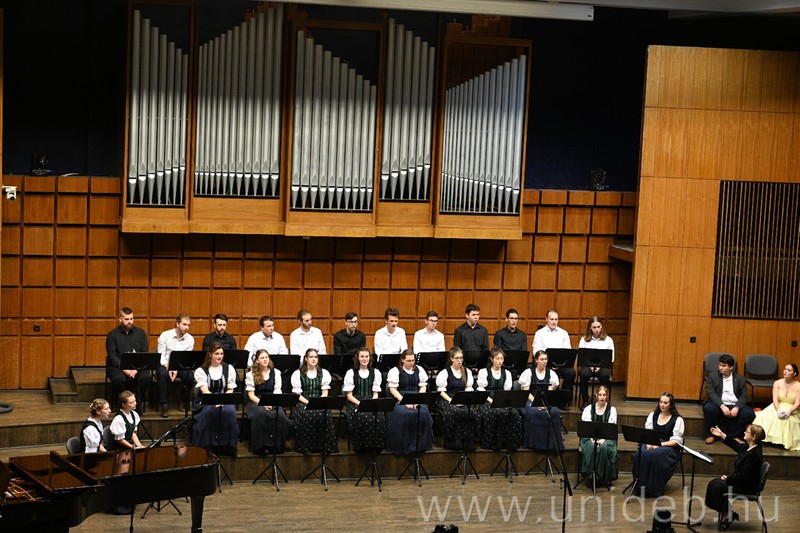Students and teachers of the Faculty of Music of the University of Debrecen presented the musicality inherent in Sándor Petőfi’s lyre at an unusual art evening. The Art Center of the University of Debrecen and DESzínház also participated in the event.
Musical works and prose performances were performed in the faculty’s Liszt Hall, which are in some way connected to the work and art of one of the most influential Hungarian poets. At the all-arts event called the Petőfi Evening, the Faculty of Music students and teachers performed songs and choral works, and a piece by Liszt was also played, which evoked the spirit of the poet in the Hungarian Historical Portraits series entitled Sándor Petőfi.
This was a pioneering undertaking, as we had never organized anything similar at the Faculty of Music. This evening was also unusual from the point of view that we also worked together with the University of Debrecen Art Center, and the successful end result may foreshadow the possibility of further joint activities. Our goal was to show which vocal and instrumental musical works remember Sándor Petőfi and which poems written by him were covered in the past. We tried to give a comprehensive picture of the poet from this point of view as well, and we tried to show how the poems inspired the composers
– Ágnes Török, the deputy dean of education at the Faculty of Music of the University of Debrecen, told hirek.unideb.hu.
During the one-hour Petőfi evening, the audience could hear sixteen works, including Petőfi’s poems “Reszket a bokor mert” set to music, “A csillagos ég”, and works by Ferenc Farkas, János Vajda, Ferenc Liszt and Giuseppe Cassone were performed in the Liszt Hall. The latter is Petőfi’s most faithful Italian translator and distributor, who translated all of the Hungarian poet’s poems into Italian, thus connecting Hungarian lyric with the melodiousness of the Italian language. During the event, the audience was able to learn about the romantic story of Giuseppe and his Platonic love, Margit, during the short scenes built around poems translated into Italian.
(unideb.hu)

















